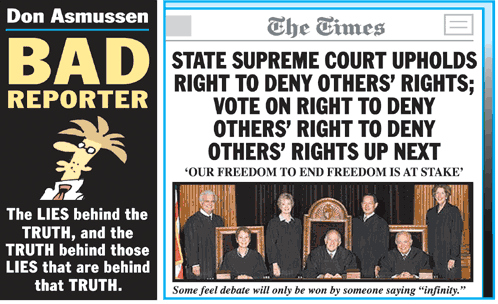
First, a new twist on a story that our legal desk covered back in February: at the annual Ig Nobel awards ceremony earlier tonight, the Prize for Literature was awarded to the Garda Síochána na hÉireann (i.e. the Irish Police Force) for the 50 or more speeding tickets they've issued in the name "Prawo Jazdy", Polish for "driver's license."
And as if that wasn't enough onomastic excitement, the 2009 Ig Nobel Prize for Veterinary Medicine was awarded for work reported in Bertenshaw, C. and Rowlinson, P., Exploring Stock Managers' Perceptions of the Human-Animal Relationship on Dairy Farms and an Association with Milk Production, Anthrozoos: A Multidisciplinary Journal of The Interactions of People and Animals 22:1, pp. 59-69, 2009. Specifically, Dr. Bertenshaw and Dr. Rowlinson share the prize for their demonstration that (and here I quote from the article's abstract): "On farms where cows were called by name, milk yield was 258 liters higher than on farms where this was not the case (p < 0.001)."
Yet all this groundbreaking research leaves me with more questions than answers. What is the causal direction behind the correlation? And if my cow produced 238 liters too little milk, would I admit to the researchers the names I used for her? And how much milk can an Irish policeman get from a speeding Polish cow?
Read the rest of this entry »

